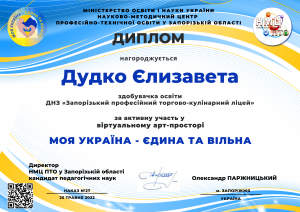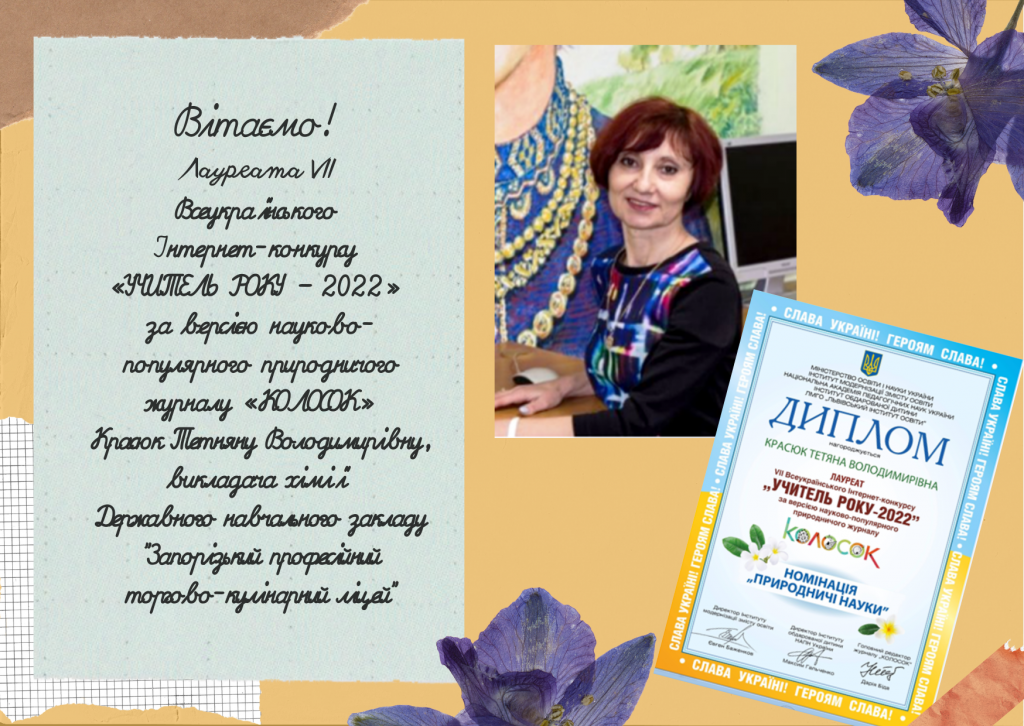Міжнародна практика розпочалась!
16 червня 2022 р., учні нашого ліцею приступили, до проходження літньої практики у республіці Болгарія.
Це відмінний спосіб не тільки поліпшити своє знання мов, поглибити знання та набути практичні навички, але також чудова можливість відпочити і головне – отримати безцінний досвід, який безумовно стане в нагоді у майбутньому професійному житті.
Головними вимогами для учнів, які беруть участь, є: відповідальність, порядність, гнучкість і швидка пристосованість, толерантність, командний дух, знання англійської та болгарської мов.











 14.02.2022 року за підтримки Департаменту молоді, сім’ї та спорту Запорізької міської ради учні нашого ліцею отримали білети на прем’єру кінострічки Незвідане: Удача Дрейка. Прем’єру кінострічки була трансльована у кінотеатрі ім. Довженко.
14.02.2022 року за підтримки Департаменту молоді, сім’ї та спорту Запорізької міської ради учні нашого ліцею отримали білети на прем’єру кінострічки Незвідане: Удача Дрейка. Прем’єру кінострічки була трансльована у кінотеатрі ім. Довженко.